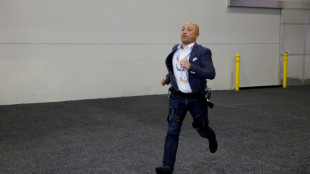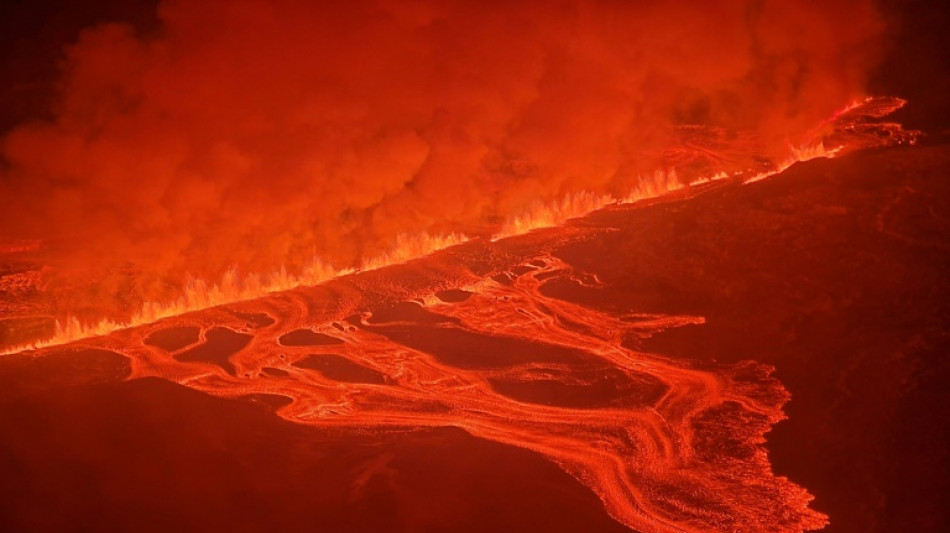
-
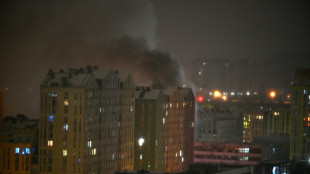 Russian strikes cut heat to Kyiv, mayor calls for temporary evacuation
Russian strikes cut heat to Kyiv, mayor calls for temporary evacuation
-
Switzerland holds day of mourning after deadly New Year fire

-
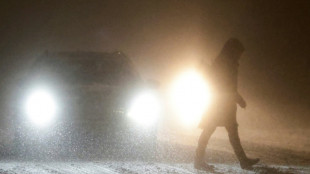 Hundreds of thousands without power as storms pummel Europe
Hundreds of thousands without power as storms pummel Europe
-
Man City win race to sign forward Semenyo

-
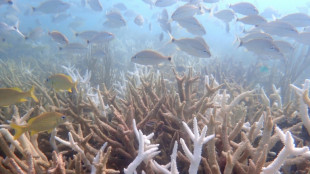 Experts say oceans soaked up record heat levels in 2025
Experts say oceans soaked up record heat levels in 2025
-
'Would be fun': Alcaraz, Sinner tease prospect of teaming up in doubles

-
 Man City win race to sign Semenyo
Man City win race to sign Semenyo
-
Chinese AI unicorn MiniMax soars 109 percent in Hong Kong debut

-
 Iran rocked by night of protests despite internet blackout: videos
Iran rocked by night of protests despite internet blackout: videos
-
Swiatek romps to United Cup victory in 58 minutes

-
 Procession of Christ's icon draws thousands to streets of Philippine capital
Procession of Christ's icon draws thousands to streets of Philippine capital
-
Every second counts for Japan's 'King Kazu' at 58

-
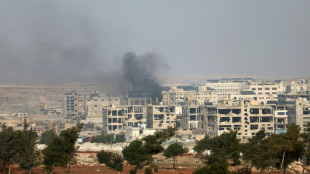 Syria announces ceasefire with Kurdish fighters in Aleppo
Syria announces ceasefire with Kurdish fighters in Aleppo
-
Russia hits Ukraine with hypersonic missile after rejecting peacekeeping plan

-
 Asian stocks mixed ahead of US jobs, Supreme Court ruling
Asian stocks mixed ahead of US jobs, Supreme Court ruling
-
Scores without power as Storm Goretti pummels Europe
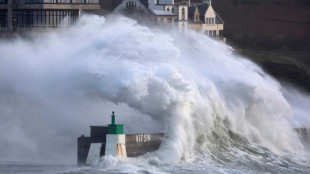
-
 Sabalenka gets revenge over Keys in repeat of Australian Open final
Sabalenka gets revenge over Keys in repeat of Australian Open final
-
Fresh from China, South Korea president to visit Japan

-
 Injured Kimmich to miss icy Bundesliga return for Bayern
Injured Kimmich to miss icy Bundesliga return for Bayern
-
Rybakina has little hope of change to tennis schedule

-
 Osimhen, Nigeria seek harmony with Algeria up next at AFCON
Osimhen, Nigeria seek harmony with Algeria up next at AFCON
-
US immigration agent's fatal shooting of woman leaves Minneapolis in shock

-
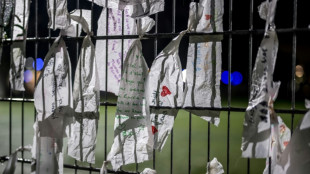 After fire tragedy, small Swiss town mourns 'decimated generation'
After fire tragedy, small Swiss town mourns 'decimated generation'
-
Switzerland mourns Crans-Montana fire tragedy

-
 Russia bombards Kyiv after rejecting peacekeeping plan
Russia bombards Kyiv after rejecting peacekeeping plan
-
Crunch time for EU's long-stalled Mercosur trade deal
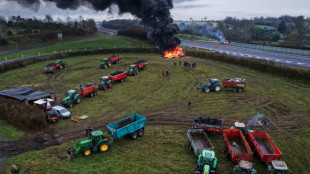
-
 Asian stocks rally ahead of US jobs, Supreme Court ruling
Asian stocks rally ahead of US jobs, Supreme Court ruling
-
'Sever the chain': scam tycoons in China's crosshairs

-
 Bulls-Heat NBA game postponed over 'moisture' on court
Bulls-Heat NBA game postponed over 'moisture' on court
-
Arsenal's Martinelli 'deeply sorry' for shoving injured Bradley

-
 Christ icon's procession draws thousands to streets of Philippine capital
Christ icon's procession draws thousands to streets of Philippine capital
-
Moleiro shining as Villarreal make up La Liga ground after cup failures

-
 New Chelsea boss Rosenior faces FA Cup test
New Chelsea boss Rosenior faces FA Cup test
-
Vietnam shrugs off Trump tariffs as US exports surge

-
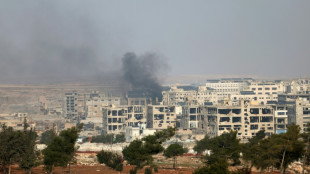 Syrian government announces ceasefire in Aleppo after deadly clashes
Syrian government announces ceasefire in Aleppo after deadly clashes
-
New Zealand's rare flightless parrot begins breeding again

-
 Age no barrier for rampant Australia but future uncertain
Age no barrier for rampant Australia but future uncertain
-
Ex-delivery driver gives voice to China's precarious gig workers

-
 Protesters, US law enforcers clash after immigration agent kills woman
Protesters, US law enforcers clash after immigration agent kills woman
-
AI gobbling up memory chips essential to gadget makers
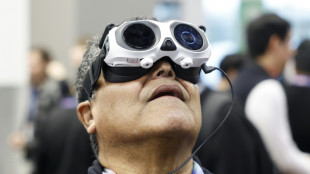
-
 'One Battle After Another' leads the charge for Golden Globes
'One Battle After Another' leads the charge for Golden Globes
-
Kyrgios to play doubles only at Australian Open

-
 Firefighters warn of 'hectic' Australian bushfires
Firefighters warn of 'hectic' Australian bushfires
-
International Space Station crew to return early after astronaut medical issue

-
 Arsenal in 'strong position' despite missed opportunity for Arteta
Arsenal in 'strong position' despite missed opportunity for Arteta
-
US House revolt advances Obamacare subsidy extension

-
 Swiss mining giant Glencore in merger talks with Rio Tinto
Swiss mining giant Glencore in merger talks with Rio Tinto
-
US snowboard star Kim dislocates shoulder ahead of Olympic three-peat bid

-
 Brazil's Lula vetoes bill reducing Bolsonaro's sentence
Brazil's Lula vetoes bill reducing Bolsonaro's sentence
-
AC Milan scrape a point with Genoa after late penalty howler


How an unprecedented magma river surged beneath an Iceland town
A river of magma flowed underneath an Icelandic fishing village late last year at a rate never before recorded, scientists said Thursday, as the region suffered yet another dramatic eruption.
Authorities in Iceland declared a state of emergency on Thursday as lava burst a key water pipe during the third volcanic fissure to hit the western Reykjanes peninsula since December.
Before 2021, the peninsula had not seen an eruption in 800 years, suggesting that volcanic activity in the region has reawoken from its slumber.
After analysing how magma shot up from a reservoir deep underground through a long, thin "vertical sheet" kilometres below the village of Grindavik in November, researchers warn that this activity is showing no signs of slowing down.
That prediction seemed to be borne out by the latest fissure that split the Earth's surface near the now-evacuated village, which occurred just hours before the new study was published in the journal Science.
Lead study author Freysteinn Sigmundsson, a researcher at the University of Iceland's Nordic Volcanological Centre, told AFP that it was difficult to say how long this new era of eruptions would continue.
But he estimated there were still months of uncertainty ahead for the threatened region.
- A mighty molten river -
Over six hours on November 10, the surging magma created a so-called dyke underground that is 15 kilometres (nine miles) long and four kilometres (2.5 miles) high but only a few metres wide, the study said.
Before Thursday's eruption, 6.5 million cubic metres of magma had accumulated below the region encompassing Grindavik, according to the Icelandic Meteorological Office.
The magma had flowed at 7,400 cubic metres per second, "a scale we have not measured before" in Iceland or elsewhere, Sigmundsson said.
For comparison, the average flow of the Seine river in Paris is just 560 cubic metres a second. The magma flow was closer to those of larger rivers such as the Danube or Yukon.
The magma flow in November was also 100 times greater than those seen before the recent eruptions on the peninsula from 2021 to 2023, Sigmundsson said.
"The activity is speeding up," he said.
The November magma flow precipitated more serious eruptions in December, last month and again on Thursday.
Increasing underground pressure has also led to hundreds of earthquakes and pushed the ground upwards a few millimetres every day, creating huge cracks in the ground and damaging infrastructure in and around Grindavik.
The hidden crevasses that have riddled the town likely pose more danger than lava, Sigmundsson said, pointing to one discovered in the middle of a sports pitch earlier this week.
- More magma to come -
The village, as well as the nearby Svartsengi power plant and the famed Blue Lagoon geothermal spa, have been repeatedly evacuated because of the eruption threats.
The long-term viability of parts of the region sitting on such volatile ground has become a matter of debate.
Sigmundsson emphasised that such decisions were up to the authorities, but said this was definitely "a period of uncertainty for the town of Grindavik".
"We need to be prepared for a lot more magma to come to the surface," he said.
The researchers used seismic measurements and satellite data to model what was driving the magma flow.
Iceland sits on the Mid-Atlantic Ridge, a crack in the ocean floor separating the Eurasian and North American tectonic plates.
As these plates have slowly moved apart over the last eight centuries, "tectonic stress" built up that was a key driving force for magma to surge through the underground geological crack, Sigmundsson said.
The researchers hope their analysis could inform efforts to understand what causes eruptions in other areas of the world.
P.Costa--AMWN
